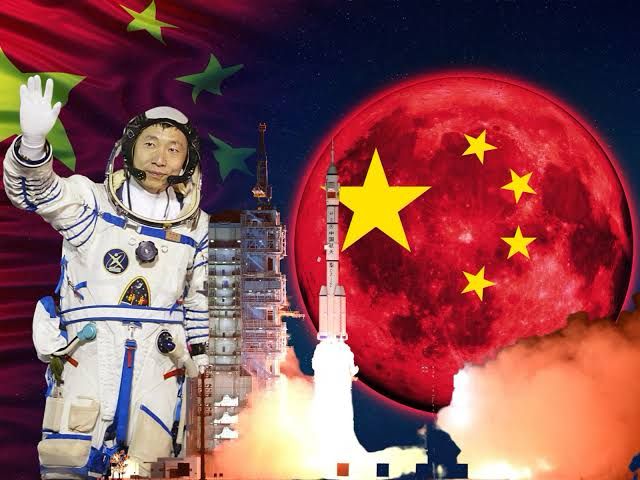By Cdr Rahul Verma (r)

“We set sail on this new sea because there is new knowledge to be
gained, and new rights to be won, and they must be won and used for the
progress of all people. For space science, like nuclear science and
technology, has no conscience of its own. Whether it will become a force for
good or ill depends on man, and only if the United States occupies a position
of preeminence can we help decide whether this new ocean will be a sea of
peace or a new terrifying theater of war.” – John F Kennedy
“Space the final frontier, these are the voyages of Starship Enterprise……Where no man has gone before” is a phrase made famous through its use in the opening scenes of the original Star Trek. This was inspired by an adaptation of the phrase, “by oceans where none had ventured”, which was first used by the noted Portuguese poet Luís de Camões in his epic poem The Lusiads, published in 1572.

The poem celebrates the Portuguese nation and its discovery of the sea route to India by Vasco da Gama. Through the centuries, this evocative phrase has transcended its literary origins, resonating across time and space to capture the essence of humanity’s relentless quest for discovery and adventure. Whether traversing the uncharted cosmos or navigating the perilous seas, it serves as a rallying cry for those who dare to venture into the unknown, forging new frontiers and unravelling the mysteries of the universe.
But the status of outer space as the final frontier is a cultural fetish. What a given culture fetishizes reveals a reflection of the blind spots of power within the specific epochs. The outer space, far from final, marks merely the inception of our odyssey into the unknown. Year after year, our comprehension of the cosmos burgeons is propelled by groundbreaking revelations and technological marvels. Space telescopes pierce the veil of infinity, unveiling the celestial ballet of star birth and demise, the enigmatic allure of exoplanets, and the unfathomable mysteries of black holes. Meanwhile, robotic probes traverse the celestial void, transmitting bewitching vistas of distant realms, unlocking the secrets concealed within our cosmic brethren.

Amidst the cosmic expanse, a tumultuous saga unfurls, a saga not merely of scientific enlightenment and technological marvels, but one woven with the threads of geopolitical intrigue. The age-old conception of space as the ultimate frontier now pulses with newfound significance as nations clash for celestial dominion. At the forefront of this cosmic contest stand behemoths of power, the United States and China, locked in a celestial duel for supremacy. The genesis of this cosmic rivalry traces back to the crucible of the Cold War, where the United States and the Soviet Union sparred ferociously for cosmic mastery. Yet, as decades waxed and waned, a new luminary graced the cosmic stage, China. With fervent aspirations and resolute ambition, China ascends swiftly to cosmic eminence, challenging the hegemony of the American colossus. It is no mere coincidence that China’s ascent finds resonance in the tapestry of cinematic imagination, where it emerges as the torchbearer of cosmic salvation.
In the realm of cinematic escapades, a paradigm shift unfolds a departure from the days when only American or British heroes graced the silver screen as saviours of humanity. Now, the celestial spotlight shines upon China. In blockbusters like “Gravity” and “The Martian,” it is not Sandra Bullock or Matt Damon alone who navigate the treacherous void, but they, too, depend on the prowess of Chinese space systems to find their way home.
PRC opinion shapers recognize the profound significance of portraying China as a celestial powerhouse, both in reality and reel. Director Frant Gwo’s magnum opus, “The Wandering Earth” and its sequel, raking in over a billion dollars since its 2019 premiere, epitomize this cosmic narrative. Here, a motley crew of endearing Chinese astronauts and engineers-turned-saviors embark on a mission to salvage humanity as the sun fades into oblivion. In this cosmic odyssey, America’s conspicuous absence serves as a poignant allegory, symbolizing China’s meteoric ascent in the cosmic hierarchy. Thus, as celluloid fantasies merge with celestial realities, the cosmic stage bears witness to China’s indomitable rise amidst the stars.

After two decades of relentless endeavour, Beijing emerged as the world’s preeminent space power, second only to the United States. With a flourishing space station, a thriving rocket industry, and a burgeoning lunar exploration program, China forges ahead, undeterred by the vacillations of its Western counterpart. While NASA hesitates between lunar return or Martian conquest, China marches forth with steadfast resolve, propelling ever mightier rockets, erecting ever grander space habitats, and dispatching ever more audacious probes into the cosmic unknown. Thus, amidst the celestial expanse, a new epoch dawns, heralding the ascent of China as a cosmic colossus, destined to etch its indelible mark upon the stars themselves.
In his resounding proclamation during the dawn of 2023, President Xi Jinping heralded China’s relentless pursuit of miracles through the crucible of unwavering toil. Drawing inspiration from the timeless wisdom of Su Shi, a luminary of the Song Dynasty, he invoked the spirit of resilience: “Charge at the toughest and aim at the farthest.” Embedded within the sinews of China’s developmental fabric lies the profound significance of its space program. As one researcher elucidates, the quest to establish China as a formidable space power is intricately intertwined with its
journey toward rejuvenation, wielding wealth and power as its guiding stars. The realm of space, fraught with peril yet brimming with potential, emerges as a crucible of high-risk yet high-value strategic enterprise, exerting monumental demands on the nation’s research and development infrastructure across multifarious domains. Indeed, the development of space technologies transcends mere technological prowess, morphing into a potent symbol of a nation’s military might, economic prowess, and scientific acumen. It is, in essence, a testament to a nation’s resolve to
fortify its national power on the global stage. China’s cosmic endeavours stand as a linchpin in its grand strategic blueprint, augmenting its Comprehensive National Power (CNP) with each stride into the celestial abyss.
While space power might not be the primary artery pumping vitality into China’s CNP, it nevertheless assumes a pivotal role, serving as a force multiplier across the geopolitical spectrum. By bolstering its military capabilities and economic prowess, China’s foray into the cosmic domain amplifies its hard power, while simultaneously enhancing its soft power, elevating its political stature in the global arena. As analysts discern, the expanse of space unfurls not merely as a battleground of celestial
conquest, but as a vantage point from which nations can navigate the intricate tapestry of international relations, asserting their dominion over political, economic, technological, military, and diplomatic realms. Thus, in the cosmic ballet of nations, China’s ascent into the heavens heralds a new epoch of strategic supremacy, where the celestial realm serves as both a crucible of ambition and a gateway to global dominance.

Within the corridors of China’s defence strategy, a resolute commitment echoes through the annals of time, encapsulated within the tenets of its 2013 defence white paper. Here, amidst the shifting tides of modern warfare, the People’s Liberation Army (PLA) charts a course anchored upon the bedrock of informatization, recognizing information superiority as the linchpin of future victories. In the cosmic theatre of conflict, the side that can master the art of information gathering and processing, while thwarting adversary attempts, holds the key to unlocking strategic triumphs on the
battlefield. Chinese literature regarding space and counter-space activities suggests that China recognizes the extensive economic and military stakes it holds in space, emphasizing the imperative to safeguard these interests. Underlying this analysis is the belief that “whoever controls space controls the Earth.” China perceives not merely the vast expanse of space, but a realm teeming with economic and military imperatives demanding vigilant safeguarding. For within the cosmic crucible lies the crux of modern warfare, where control of the space translates to dominion over terrestrial
realms. In November 2009, General Xu Qiliang, who was then the Commander of the PLA Air Force and the Vice Chairman of the Central Military Commission, declared that space had evolved into a “new commanding height for international strategic competition” and that having control of the air and space “means having control of the ground, oceans, and the electromagnetic space, which also means having the strategic initiative in one’s hands. Chinese writings place a heavy emphasis on gaining the initiative at the outset of a conflict, including during the U.S. military’s deployment stage. The PLA, like most militaries, would prefer to fight a “quick war with a quick resolution”.
Drawing upon analyses since the 1982 Falklands War, PLA analysts prioritize seizing the initiative, guided by Jiang Zemin’s counsel, “what the enemy is most fearful of is what we should be developing.” Furthermore, as per one of the researchers, President Xi instructed the PLA to look at the requirements of future war and solve the problems of “seeing far, striking far, and striking accurately.” The potential of space technologies to enhance C4ISR systems, facilitating precision strikes and the capacity to target adversary space assets using counter-space technologies, indicates that they were probably under consideration for inclusion in Xi’s directive.
With Admiral Zheng He’s legendary voyages, seven expeditions, and the famed “treasure fleets,” to the Indian Ocean and East Africa between 1405 and 1433 as a historical backdrop, China draws a poignant lesson from its past, eschewing stagnation in favour of cosmic exploration. Unlike the Ming Dynasty’s fateful retreat from the seas when the European power was beginning their age of exploration, today’s China embraces the boundless expanse of outer space with unyielding determination, poised to unravel its mysteries and harness its boundless potential. In this cosmic odyssey, the errors of yesteryears serve as beacons guiding China’s celestial endeavors, ensuring that history’s mistakes are not destined to be repeated amidst the infinite expanse of the cosmos.
Commander Rahul Verma (r) is an Emerging Technology and Prioritization Scout for a leading Indian Multi-National Corporation, focusing on advancing force modernization through innovative technological applications and operational concepts. With 21 years as a Naval Aviator, including a distinguished role in the Indian Navy’s Technology.



